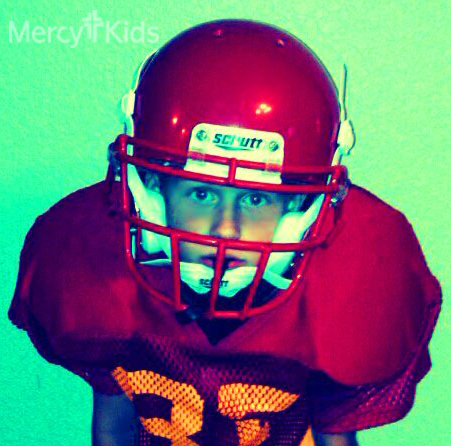

Back to school season is upon us. Fall football and soccer practices are also here, and it’s a good time to get important reminders on protecting your child from concussions during these high contact sports.
Children and adolescents often suffer concussions and head injuries while participating in sports such as football, hockey or soccer. These occur primarily through violent collisions but also through heading the ball in soccer. Younger brains are more susceptible to injury than adult brains, and consequences can be long lasting.
AAP (American Academy of Pediatrics) suggest always wearing a helmet if the sport calls for it. Though helmets don’t always protect from concussion, they offer more protection than nothing at all.
When watching for a concussion, we may think of it as someone passing out, a person can have a concussion and never lose consciousness.
Mercy Joplin Sports Medicine Physician Dr. Russ Kennedy offers some signs and symptoms to watch for when dealing with a head injury:
· feeling overly tired
· feeling dizzy or lightheaded
· nausea or vomiting
· headaches
· trouble remembering things that happened right before and after the injury
· blurred vision
· difficulty concentrating or making decisions
· sensitivity to light
· slurred speech
· difficulty with coordination or balance
When a child or adult suffers an apparent concussion, that person should not be sent back into the same game without medical consultation. It’s important to recognize symptoms and fully recover before returning to the playing field. Work closely with your doctor as to when it’s best to return and report to the emergency department for further evaluation if condition worsens.

